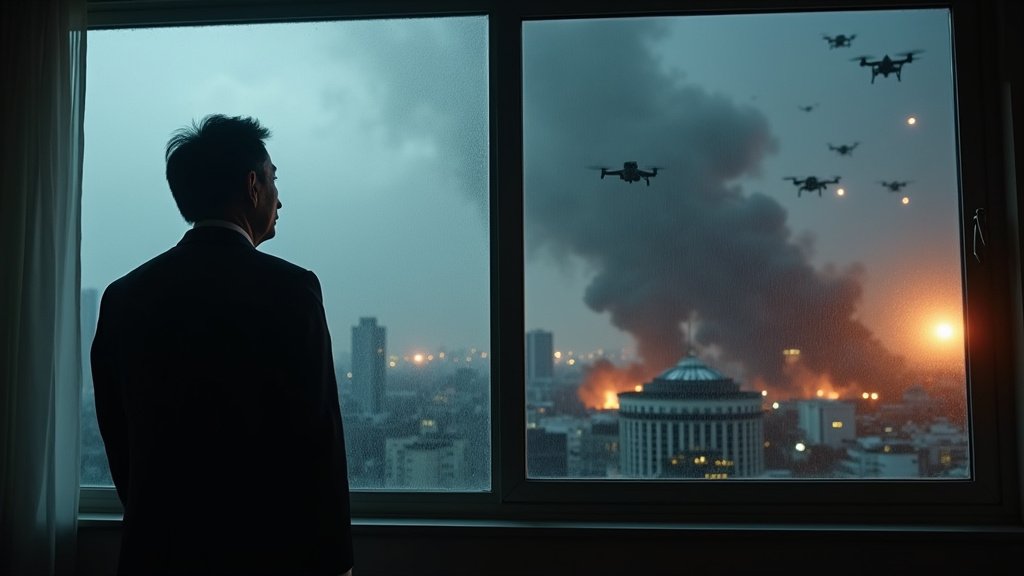A federal judge has declared President Trump’s deployment of National Guard troops to Washington, D.C., to be unlawful, ruling that the administration exceeded its statutory authority and acted contrary to law. U.S. District Judge Jia Cobb found that the deployment of both the D.C. National Guard and out-of-state Guard members for non-military, crime-deterrence missions, without a request from the city’s civil authorities, violated federal law and infringed upon the District’s right to self-governance, a significant moment for the Trump National Guard controversy.
The ruling stems from a lawsuit filed by D.C. Attorney General Brian Schwalb, who argued that the prolonged presence of National Guard troops on the city’s streets constituted an “involuntary military occupation” and violated prohibitions against using the military for domestic law enforcement. Schwalb hailed the decision as a “victory for DC, Home Rule, and American democracy,” emphasizing the dangerous precedent of normalizing military troop use for domestic policing under the Trump administration.
Background to the Trump National Guard Deployment
President Trump initially ordered National Guard forces to Washington, D.C., in August, citing a declared “crime emergency” in the city. This move aimed to bolster efforts against crime through a combination of Guard troops, federal law enforcement agents, and local D.C. police. The deployment involved approximately 2,000 to 2,300 Guard members, including units from several Republican-led states. The troops were often seen patrolling public spaces, including tourist areas and metro stations, and were even deputized as special U.S. Marshal Service deputies as part of the Trump National Guard operation.
Judge Cobb’s Ruling on the Trump National Guard
Judge Jia Cobb, appointed by former President Joe Biden, meticulously detailed her reasoning in a 61-page opinion. She determined that the Trump administration had overstepped its authority under Title 49 of the D.C. Code and federal statute 32 U.S.C. § 502. Specifically, Cobb found that the president lacked the power to deploy the D.C. National Guard for “non-military, crime-deterrence missions in the absence of a request from the city’s civil authorities,” thereby addressing a key aspect of the Trump National Guard legal challenge.
Furthermore, the judge ruled that the administration did not have the statutory authority to request assistance from out-of-state National Guard units for operations within the District, as such missions were not authorized under state law. Cobb rejected the administration’s arguments that broader interpretations of presidential authority, particularly Article II of the Constitution, could override Congress’s statutory scheme governing the District and its National Guard. She emphasized that Congress, not the president, controls the circumstances under which the D.C. Guard can be deployed, especially considering the District’s unique status and its Home Rule Act of 1973, which grants it a local government. The judge concluded that the deployment had “irreparably harmed” the District’s “sovereign powers” and “infringed upon the District’s right to govern itself,” a clear rebuke of Trump administration overreach.
Implications of the Trump National Guard Ruling
The ruling is significant as it marks another instance where federal courts have intervened regarding President Trump’s use of National Guard forces in domestic matters, with similar challenges occurring in Chicago and Portland. While Judge Cobb granted a preliminary injunction against the Trump National Guard deployment, she stayed her order for 21 days, until December 11, to allow the Trump administration time to appeal her decision. This delay means the National Guard presence in D.C. will continue for the immediate future, pending appellate review, highlighting the ongoing legal battle over the D.C. National Guard.
The White House, through spokeswoman Abigail Jackson, criticized the ruling, asserting that President Trump has the lawful authority to deploy Guard troops to the nation’s capital and that the lawsuit was an attempt to undermine his crime-fighting operations. D.C. Attorney General Schwalb, however, views the decision as a critical defense of local autonomy and American democracy, warning against normalizing the use of military for domestic law enforcement, particularly in light of the unlawful deployment finding.
This ongoing legal battle highlights the tense relationship between the federal government and Washington, D.C., regarding law enforcement operations and the limits of presidential power. The case’s progression through the appeals court could have far-reaching implications for the executive branch’s future use of National Guard resources in domestic contexts, influencing trending discussions on federalism and governance across the globe. The news is developing, and further updates are expected as the administration decides on its next legal steps concerning the Trump National Guard.




